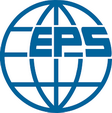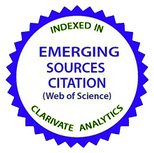Effect of surfactant type on the magnetic and morphological properties of NiFeO4 / reduced graphene oxide composites
DOI:
https://doi.org/10.15330/pcss.23.3.524-530Keywords:
graphene oxide, nanocomposite, nickel ferrite, Mössbauer spectroscopyAbstract
A systematic study of the effect of various types of surfactants (polyethylene glycol, Trinon X-100 and cetyltrimethylammonium bromide) and subsequent annealing on the magnetic ordering and morphology of the nickel ferrite / reduced graphene oxide composite materials has been carried out. Hydrazine hydrate has been used both as an agent to initiate precipitation and as a reducing agent to remove oxygen functionality from the surface of graphene oxide particles. To characterize the material, Mössbauer spectroscopy and nitrogen absorption porosimetry have been used. The obtained result suggests a new way for one-pot synthesis of NiFe2O4/rGO composite materials with controlled magnetic ordering and porous structure.
References
T. Kavinkumar, K. Vinodgopal, B. Neppolian, Development of nanohybrids based on porous spinel MCo2O4 (M = Zn, Cu, Ni and Mn)/reduced graphene oxide/carbon nanotube as promising electrodes for high performance energy storage devices, Applied Surface Science 513, 145781(2020). https://doi.org/10.1016/j.apsusc.2020.145781.
S.N. Alam, N. Sharma, L. Kumar, Synthesis of Graphene Oxide (GO) by Modified Hummers Method and Its Thermal Reduction to Obtain Reduced Graphene Oxide (rGO), Graphene 6(1), 1-18 (2017). https://doi.org/10.4236/graphene.2017.61001.
J. Gupta, A. Prakash, M. K. Jaiswal, A. Agarrwal, D. Bahadur, Superparamagnetic iron oxide-reduced graphene oxide nanohybrid-a vehicle for targeted drug delivery and hyperthermia treatment of cancer, Journal of Magnetism and Magnetic Materials 448, 332-338 (2018). https://doi.org/10.1016/j.jmmm.2017.05.084.
V.O. Kotsyubynsky, V.M. Boychuk, I.M. Budzulyak, B.I. Rachiy, M.A. Hodlevska, A.I. Kachmar, M.A. Hodlevsky, Graphene oxide synthesis using modified Tour method, Advances in Natural Sciences: Nanoscience and Nanotechnology 12(3), 035006 (2021). https://doi.org/10.1088/2043-6262/ac204f.
V. Kotsyubynsky, R. Zapukhlyak, V. Boychuk, M. Hodlevska, B. Rachiy, I. Yaremiy, M. Hodlevsky, Hydrothermally synthesized CuFe2O4/rGO and CuFe2O4/porous carbon nanocomposites, Applied Nanoscience 12(4), 1131-1138 (2022). https://doi.org/10.1007/s13204-021-01773-z.
L. Khanna, N. K. Verma, S. K. Tripathi, Burgeoning tool of biomedical applications - Superparamagnetic nano¬particles, Journal of Alloys and Compounds 752, 332-353 (2018). https://doi.org/10.1016/j.jallcom.2018.04.093.
S. Mitra, K. Mandal, P.A. Kumar, Temperature dependence of magnetic properties of NiFe2O4 nanoparticles embeded in SiO2 matrix, Journal of Magnetism and Magnetic Materials 306(2), 254-259 (2006). https://doi.org/10.1016/j.jmmm.2006.03.024.
T. Tatarchuk, N. Danyliuk, A. Shyichuk, V. Kotsyubynsky, I. Lapchuk, V. Mandzyuk, Green synthesis of cobalt ferrite using grape extract: the impact of cation distribution and inversion degree on the catalytic activity in the decomposition of hydrogen peroxide, Emergent Materials 5(1), 89-103 (2022). https://doi.org/10.1007/s42247-021-00323-1.
H. Salazar-Tamayo, K.E. García, C.A. Barrero, New method to calculate Mössbauer recoilless f-factors in NiFe2O4. Magnetic, morphological and structural properties, Journal of Magnetism and Magnetic Materials 471, 242-249 (2019). https://doi.org/10.1016/j.jmmm.2018.09.066.
S. Sun, X. Zhao, M. Yang, L. Ma, X. Shen, Facile and Eco-Friendly Synthesis of Finger-Like Co3O4 Nanorods for Electrochemical Energy Storage, Nanomaterials 5(4), 2335-2347 (2015). https://doi.org/10.3390/nano5042335.









